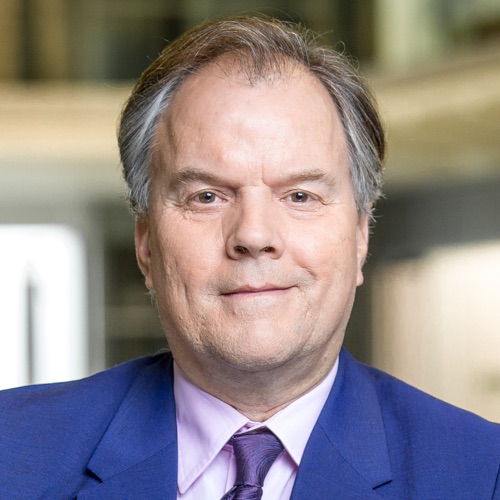 6m
6mTrump and Biden are ‘Tweedledee and Tweedledum’ on Afghanistan withdrawal, says John Bolton
 Matt Frei
Europe Editor and Presenter
Matt Frei
Europe Editor and Presenter
Ambassador John Bolton served as US ambassador to the UN under President George W Bush and as national security adviser to President Donald Trump.
He spoke with Matt Frei about whether he believed the Taliban had changed, as the group held its first press conference since they took control of Afghanistan.
JB: I think right now Taliban have their smiley faces on because they’ve had good Western public relations advice and they won’t get back to slitting throats until everybody’s out of Hamid Karzai International Airport. I don’t trust them any more today than we did 20 years ago. I understand what they’re saying, I understand what some of their apologists in the West are saying. The only proof we’ll have is in the experience after they take control. But if you look for where the best evidence is, it’s in the minds of the Afghan people. And as far as I can see from a distance, they’re terrified.
MF: Is it possible that the Taliban might have changed in these 20 years? I mean, become a different kind of Taliban as some of them would have us believe?
JN: Look, anything is possible, but consider the psychology. They were tossed out of power 20 years ago. They’ve spent 20 years in exile in camps in Pakistan and even more remote places of Afghanistan. They’ve now fought their way back to power. Are they really going to come into Kabul and say: ‘You know, all that ideology we pursued these last 30 or 40 years, we’re going to put all that aside. Kumbaya. Let’s go attend international conferences in Paris on climate change.’ Not going to happen.
MF: Do you think they’ve learnt their lesson when it comes to harbouring international terrorist organisations, which is the reason why they got toppled in the first place?
JB: I don’t think there’s any reason to believe that. These people are pursuing a very strict ideology, and that’s really the concern that I have for why it was a mistake to leave Afghanistan entirely, as we have now done. The strategic reason to stay in Afghanistan was as an insurance policy against Taliban coming back to power and ISIS and Al-Qaeda and others getting sanctuary there from which to plan attacks on America, Europe and the rest of the world. I think the risk is very high. I don’t think it’s going to happen tomorrow, but I think it will begin to happen soon. We’ve had estimates from observers who say there may be as many as 10,000 foreign fighters already in Afghanistan. And again, we can’t say how accurate that is, but it’s very troubling.
MF: I believe one of the reasons why you resigned from the Trump cabinet is because you didn’t agree with the then president’s policy of negotiating with the Taliban over the heads of the government in Kabul. Who’s more to blame here? Is it President Trump for doing that or is it President Biden for the unseemly haste, if you like, of America’s departure?
JB: Well, there’s certainly plenty of blame to go around, I think there are two things happening simultaneously. One is the decision to withdraw. And on that score, Trump and Biden essentially see things exactly the same way. They are on withdrawal from Afghanistan, Tweedledee and Tweedledum. They are equally to blame. The second question is how the actual withdrawal is being executed. And that, I have to say, is on Biden. This has been a debacle. It’s an embarrassment, a humiliation. I think it’s seen Biden shred his own credibility, his own effort to present himself as the professional who can handle national security affairs. And I’m terribly worried, whatever happens in Afghanistan, that the reverberations around the world are going to be very, very detrimental to America and the West more broadly.
MF: You’re an old Washington hand, you’ve served in government, why couldn’t you persuade Donald Trump to adopt a different course when it came to the Taliban?
JB: Because he was convinced that it was in his political interest to end this endless war and say he got all Americans out. And as I explained in my book at some length, the way to understand how Donald Trump thinks is to ask what he thinks is in his political benefit.
MF: Isn’t that the problem here with America’s foreign involvement? Too much of it is defined by America’s domestic election cycles.
JB: Well, that’s a problem with democracy that you’ve identified, I don’t know that there’s a cure for that. I think that what we’ve lacked in the past several decades, though, is leaders who have understood the strategic threats we face and explained them properly to the American people.